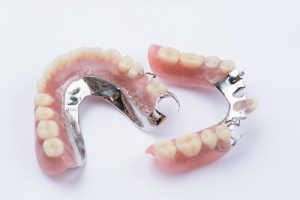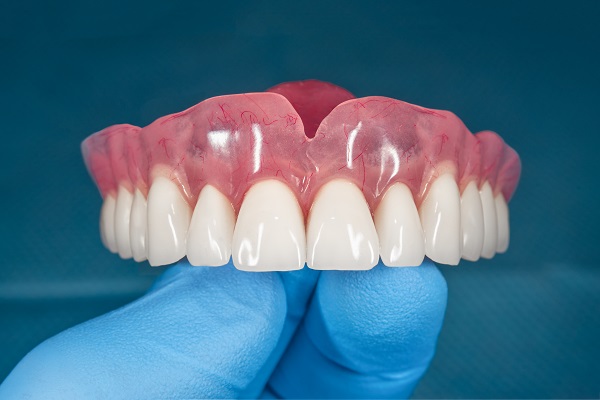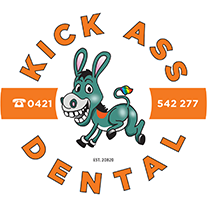What are the Four Types of Dentures?
Understanding the Different Types of Dentures for a Brighter Smile
Introduction
Dentures have been a popular solution for replacing missing teeth for centuries. They offer functional and aesthetic benefits, allowing individuals to regain their ability to chew, speak, and smile confidently. As dental technology has advanced, various types of dentures have emerged to cater to different needs and preferences. In this article, we will explore the four main types of dentures: complete dentures, partial dentures, immediate dentures, and implant-supported dentures. Understanding these options will help you make an informed decision when it comes to choosing the best dentures for your unique dental situation. What are the four types of dentures?
1. Complete Dentures
Complete dentures, as the name suggests, are designed to replace all the teeth in the upper or lower jaw, or both. They are an ideal option for individuals who have lost all of their natural teeth due to decay, gum disease, or injury. Complete dentures are custom-made to fit the contours of your mouth and provide a comfortable and natural-looking smile. These dentures can be made of acrylic or a combination of acrylic and metal for added durability.

There are two types of complete dentures: conventional and immediate dentures. Conventional dentures are created after the gums have healed from tooth extractions, which can take several weeks. On the other hand, immediate dentures are made in advance and can be worn immediately after tooth extraction. Although immediate dentures offer the advantage of not having to go without teeth during the healing process, they may require more adjustments as the gums and bone reshape over time.
2. Partial Dentures
Partial dentures are used when some natural teeth remain in the mouth. They consist of replacement teeth attached to a pink or gum-colored base that is connected to a metal framework. Partial dentures not only fill the gaps left by missing teeth but also prevent the remaining natural teeth from shifting position. This helps maintain the proper alignment of your bite and improves chewing efficiency.
The metal framework of partial dentures provides stability and support, making them a durable and long-lasting solution. The replacement teeth are designed to blend seamlessly with your natural teeth, ensuring a natural appearance. Partial dentures can be removed for cleaning and are usually recommended for individuals who are not suitable candidates for dental implants or bridges.
3. Immediate Dentures
Immediate dentures, as mentioned earlier, are a type of complete dentures. They are designed to be worn immediately after tooth extraction, allowing individuals to have teeth while their gums heal. Immediate dentures are typically made in advance, using measurements and impressions taken before the extraction procedure. This ensures that you can leave the dental office with a complete set of teeth on the same day your natural teeth are removed.
While immediate dentures offer the benefit of immediate tooth replacement, they may require more adjustments over time. As the gums heal and shrink, the dentures may become loose and require relining or rebasing. Immediate dentures are considered a temporary solution until the gums have fully healed, at which point a conventional set of dentures can be created for a better fit.
4. Implant-Supported Dentures
Implant-supported dentures provide a stable and secure option for individuals who desire a more permanent solution for missing teeth. These dentures are anchored to dental implants, which are titanium posts surgically placed into the jawbone. Implant-supported dentures offer several advantages, including enhanced stability, improved chewing efficiency, and a natural-looking smile. For tooth dentures see here.

By integrating with the jawbone, dental implants stimulate bone growth and prevent bone loss, which ensures the preservation of facial structure and prevents the sunken appearance often associated with tooth loss. Implant-supported dentures can be either fixed or removable, depending on your specific needs and preferences.
Fixed implant-supported dentures, also known as implant-supported fixed bridges, are permanently attached to the dental implants. They offer the closest resemblance to natural teeth, providing exceptional stability and functionality. These dentures are typically recommended for individuals who have a sufficient amount of healthy jawbone and are looking for a long-term solution.
Removable implant-supported dentures, also known as implant-supported overdentures, are designed to be easily removed for cleaning and maintenance. They are secured to the dental implants using attachments or snap-on mechanisms, offering a more stable alternative to traditional removable dentures. Removable implant-supported dentures are an excellent choice for those who prefer the convenience of being able to remove their dentures when needed.
Conclusion
Dentures play a vital role in restoring the function and aesthetics of a smile for individuals who have experienced tooth loss. Understanding the different types of dentures can help you make an informed decision when it comes to choosing the most suitable option for your dental needs. Whether you require complete dentures, partial dentures, immediate dentures, or implant-supported dentures, consulting with a qualified dentist will ensure that you receive the best treatment plan tailored to your specific situation.
Remember, each type of denture has its own unique benefits and considerations. Factors such as oral health, bone structure, budget, and personal preferences should be taken into account when determining the most appropriate type of denture for you. With the advancements in dental technology, dentures have become more comfortable, natural-looking, and functional than ever before, allowing individuals to regain their confidence and enjoy a beautiful smile once again.
Investing in high-quality dentures and maintaining good oral hygiene practices will help prolong the lifespan of your dentures and ensure optimal oral health. Regular visits to the dentist for check-ups and adjustments are essential to ensure a proper fit and address any issues that may arise. By choosing the right type of dentures and maintaining proper care, you can enjoy a bright and confident smile that will enhance your overall quality of life.





